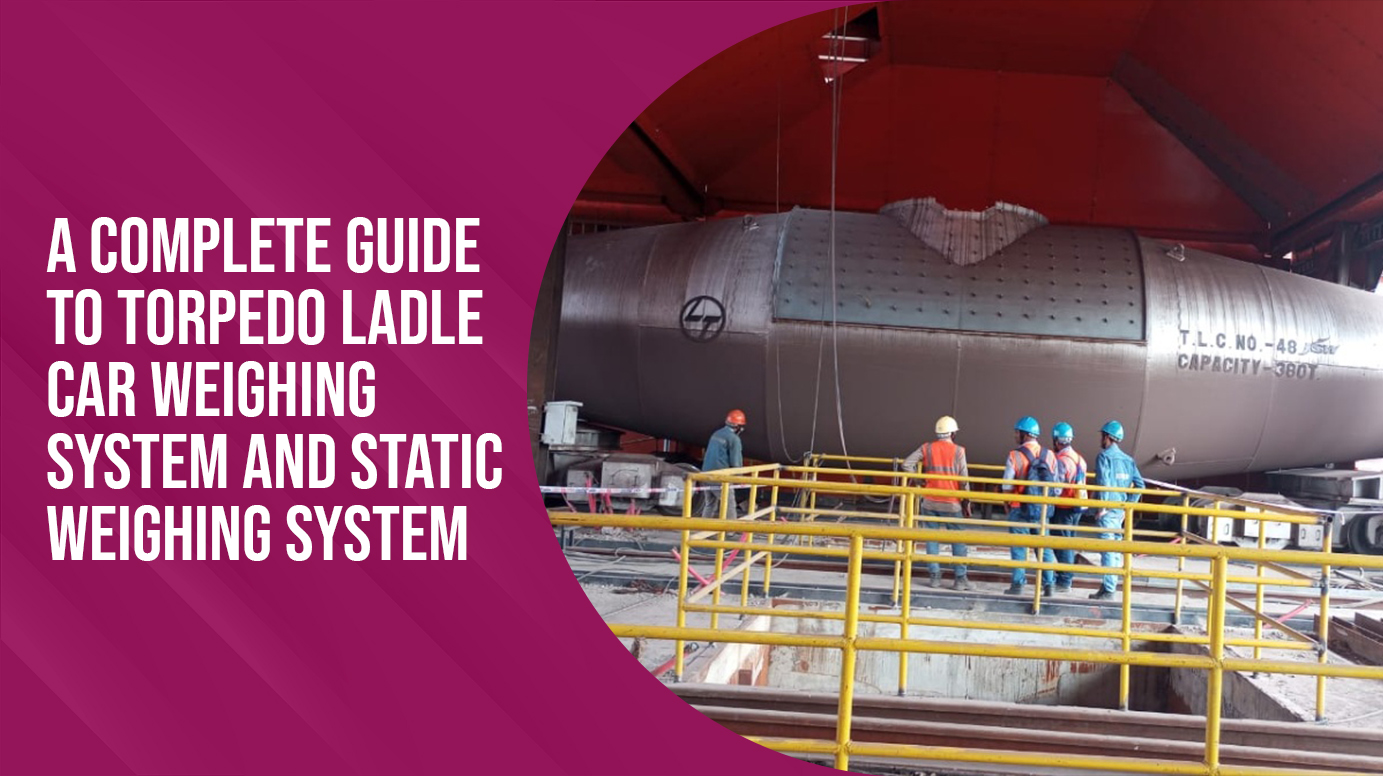Precision in static ladle car weighing systems ensures the right raw material is used, prevents overloading, and enhances production efficiency. In this blog, we’ll explore why ladle car weighing matters, how different weighing systems work, and how investing in the right technology can improve your bottom line.
The Role of Ladle Car Weighing in Steel Manufacturing
Ladle cars play a crucial role in the steel production process. They transport molten metal from the blast furnace to the refining station, where it is treated before being cast into the final shape. Given the sheer volume and weight of molten metal being moved, precision in weight measurement is essential for:
-
Maintaining product quality by ensuring the right alloy composition.
-
Minimizing raw material wastage which can lead to significant cost savings.
-
Enhancing operational efficiency by reducing downtime and preventing overloading.
-
Ensuring safety by avoiding excessive stress on ladle cars, rails, and cranes.
A torpedo ladle car weighing system provides real-time weight data, allowing manufacturers to control their material flow and reduce financial losses.
Types of Ladle Car Weighing Systems
Two primary types of ladle weighing systems are used in steel manufacturing: static ladle car weighing systems and torpedo ladle car weighing systems. Each serves a distinct purpose, depending on the operational requirements of the plant.
1. Static Ladle Car Weighing System
A static ladle car weighing system is designed to measure the weight of a stationary ladle before or after pouring molten metal. These systems are installed on fixed platforms where the ladle car stops for precise weight measurement.
Advantages:
-
High-precision weight readings with minimal error margin.
-
Ideal for quality control and ensuring consistency in material usage.
-
Ensures accurate charging and ladle filling.
Best for:
-
Plants where ladles have designated weighing stations.
-
Operations requiring precise control over alloy composition.
2. Torpedo Ladle Car Weighing System
Unlike static systems, a torpedo ladle car weighing system provides continuous weight measurement while the ladle is in motion. These systems are integrated into the torpedo ladle transport mechanism, allowing for dynamic weight tracking without stopping operations.Advantages:
-
Enables real-time monitoring of molten metal weight.
-
Reduces downtime by eliminating the need for stationary weighing.
-
Helps optimize metal transfer processes, reducing material loss.
Best for:
-
High-volume steel manufacturing plants with continuous operations.
-
Plants seeking to minimize operational disruptions and increase efficiency.
Why Precision Weighing Matters for Your Bottom Line
Accurate ladle car weighing directly impacts a steel plant’s profitability. Here’s how precision weighing improves financial performance:
1. Reduces Material Wastage
Steel production requires precise alloying and casting. Even a small variation in weight can lead to the overuse or underusing of expensive raw materials. High-precision torpedo ladle car weighing systems ensure that only the necessary amount of metal is used, preventing unnecessary costs.
According to industry estimates, reducing material wastage by just 1% can save steel manufacturers millions of dollars annually.
2. Enhances Operational Efficiency
A well-integrated static ladle car weighing system reduces the risk of bottlenecks in production. Operators can quickly assess metal weight, reducing wait times and optimizing workflow efficiency.
3. Prevents Equipment Overload and Downtime
Overloading ladle cars can lead to premature wear and tear on equipment, increasing maintenance costs and downtime. Weighing systems ensure ladle cars are not overloaded, extending the lifespan of critical transport and handling machinery.
Stat: Studies show that unplanned equipment downtime costs manufacturers an average of $260,000 per hour.
4. Improves Safety Compliance
Ensuring that ladles are not overloaded minimizes the risk of structural failures, molten metal spills, and workplace accidents. Compliance with safety regulations not only protects workers but also prevents potential legal liabilities and production halts.
How to Choose the Right Ladle Car Weighing System
When selecting a ladle weighing system, consider the following factors to maximize efficiency and accuracy:
1. Environmental Conditions
Steel plants are exposed to extreme temperatures, vibrations, and dust. The system should have:
-
High-temperature compensation capabilities.
-
Durable construction with IP-rated protection.
-
Resistance to shocks and heavy vibrations.
2. Accuracy and Load Capacity
Ensure the system can handle the weight range of your ladles while providing precise readings. Look for load cells with high accuracy and minimal drift over time.
3. Integration with Existing Infrastructure
Choose a system that integrates with your current ladle transfer process without requiring extensive modifications. Compatibility with automation and production management systems is crucial.
4. Data Connectivity and Automation
Modern torpedo ladle car weighing systems offer digital connectivity, enabling:
-
Real-time tracking and monitoring.
-
Automated weight adjustments based on system feedback.
-
Integration with cloud-based reporting for predictive maintenance.
5. Maintenance and Technical Support
Select a provider that offers:
-
Reliable after-sales service.
-
Easy-to-replace spare parts.
-
Remote diagnostics and troubleshooting.
Conclusion
The importance of accurate ladle car weighing cannot be overstated. Whether you choose a static ladle car weighing system for precise control or a torpedo ladle car weighing system for real-time monitoring, investing in the right technology will improve efficiency, reduce costs, and enhance safety.
Key Takeaways:
-
Precision weighing reduces material wastage and increases profitability.
-
Advanced systems improve operational efficiency and prevent costly downtime.
-
Investing in high-quality solutions like those from MeasureDi ensures long-term success.
By integrating a reliable ladle car weighing system, steel manufacturers can take control of their production processes and boost their bottom line. Explore MeasureDi for cutting-edge weighing solutions tailored to your industry needs.
